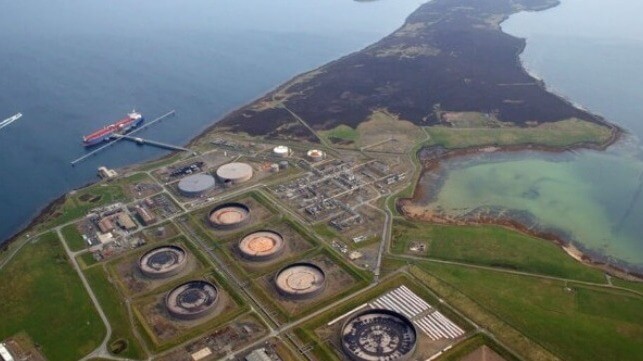UK Closes its Ports to Russian Shipping with EU Expected to Follow

In the continuing effort to use economic and trade sanctions to punish Russia for the invasion of Ukraine, the United Kingdom confirmed earlier rumors that it is requesting all its ports to turn away all Russian shipping. A similar effort is also building momentum in the European Union, with countries ranging from Denmark to Spain calling for immediate actions.
The ban on shipping is the latest step in an increasing series of sanctions coming from western countries ranging from closing airspace to Russian planes to sanctions on banking and financial institutions and the wealthy political elite surrounding Russian President Vladimir Putin. Russia at first dismissed the sanctions, but as the west moved to tighten the restrictions and encompass more of the Russian economy, the Kremlin on Monday acknowledged the detrimental impact as the Russian currency dropped dramatically in value and inflation and interest rates jumped.
“The Department for Transportation does not consider it appropriate for Russian vessels to continue to enter UK ports,” wrote the UK Secretary of State for Transportation Grant Shapps in a letter to the operators of all UK ports. “The maritime sector is fundamental to international trade, and we must play our part in restricting Russia’s economic interests and holding the Russia government to account.”
The pressure to deny Russian vessels access to UK ports started last week when it was pointed out that the country’s vessels were due to dock in Scotland as part of the oil trade. Russian vessels are used to move oil from the offshore platform as well as supporting the platforms.
The Member of Parliament for the Orkney and Shetland region had called on UK Prime Minister Boris Johnson to take action as part of the sanctions. The issue however grew in urgency with the 110,000 dwt crude tanker NS Champion, registered in Liberia but operated by Sovcomflot, due to arrive at the Orkney’s Flotta oil terminal on March 1. Bloomberg is reporting that a total of three Russian-operated tankers are off the coast of the UK currently.
Shapps called on all UK ports not to provide access to any ship that is owned, controlled, chartered, or operated by any person connected with Russia, as well as any ships linked to designated persons in the sanctions expanding beyond ships registered in Russia and flying the Russian flag. The government also said it would support ports in identifying Russian ships and would communicate information to the relevant ports.
Speaking in the British House of Commons on Monday, Shapps said his letter was the first step to closing the ports. He promised to follow up with prohibiting legislation.

that matters most
Get the latest maritime news delivered to your inbox daily.
At the EU, Spain’s Foreign Minister Jose Manuel Albares said on Monday that they were among the countries supporting a similar move across the EU. Danish foreign minister Jeppe Kofod told reporters the effort would follow the earlier sanctions. Spain said it supports banning Russian ships from its ports and said the EU could move to ban the ships from all of its waters.
The Port of Rotterdam, Western Europe’s largest port, had previously said that Russian trade makes up 15 percent of the transshipment volumes at the port. They estimated that 62 million tons of goods transshipped at the port are Russia-oriented. They reported that nearly a third of the crude oil, a quarter of the LNG, and a fifth of each coal and oil products moving through the port relate to Russia. They noted that Russia also exports steel, copper, aluminum, and nickel through Rotterdam, but said that less than 10 percent of the container trade is linked to Rotterdam.
